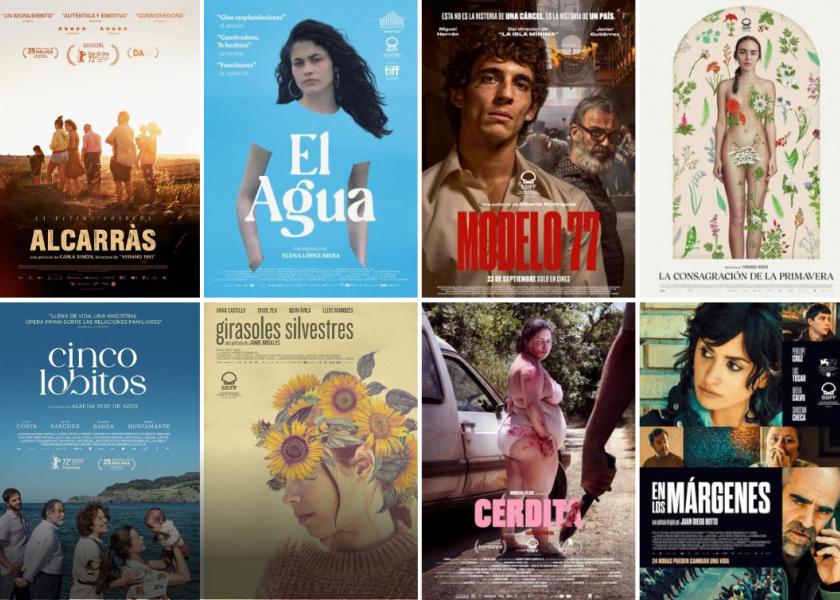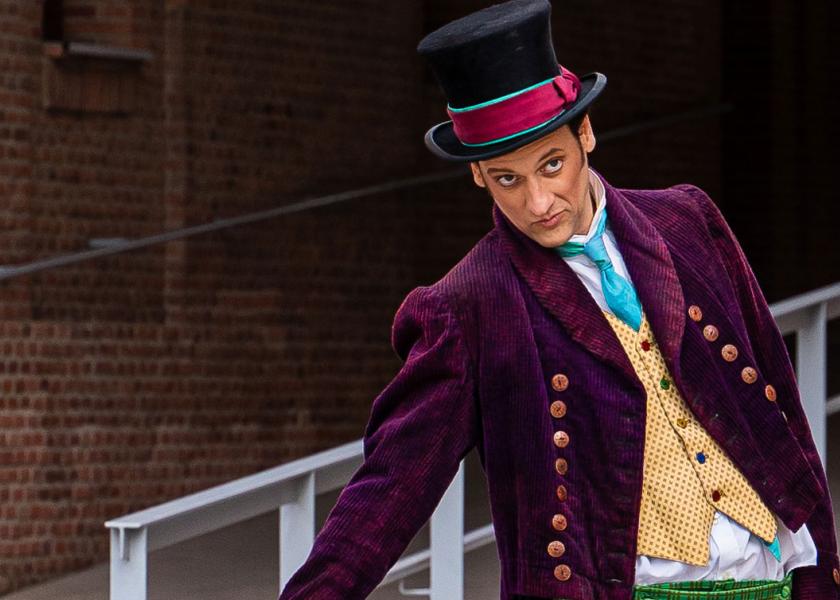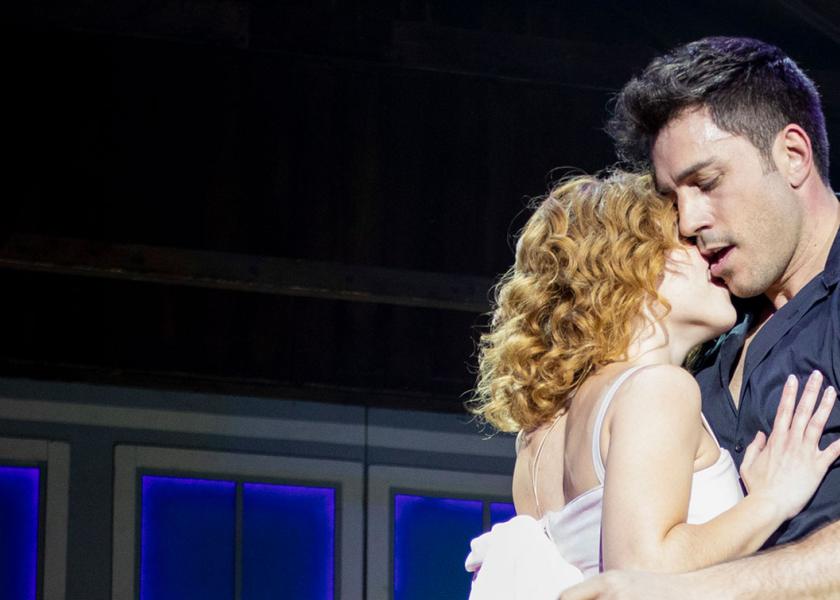Gorka Otxoa
New masculinity
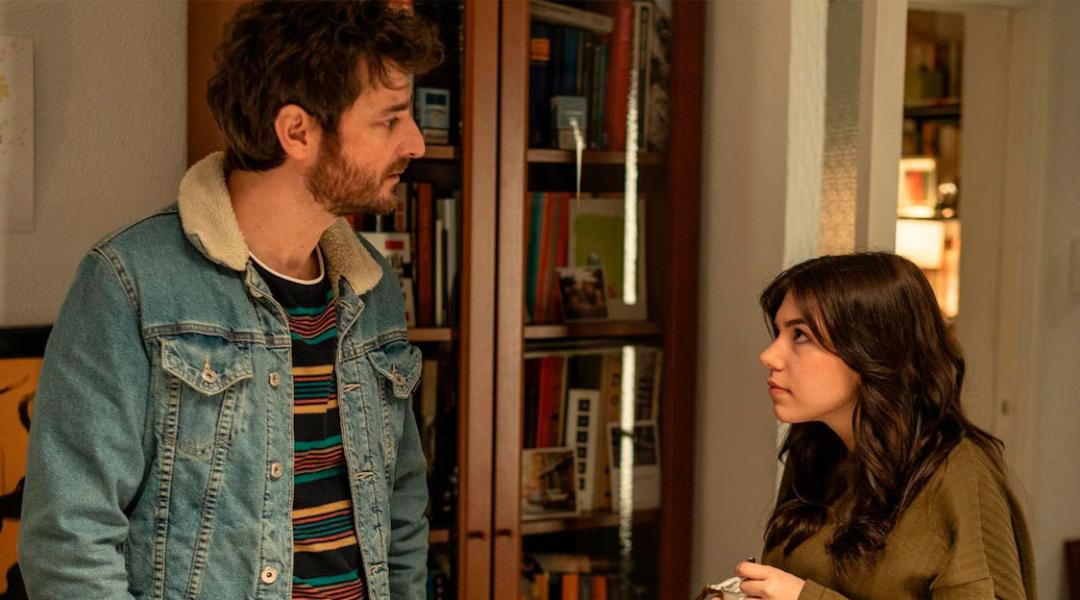
This Basque actor is one of the protagonists of the successful 'Alpha Males' series, which invites us to reflect on what it means to be a man in the 21st century. And it does so through humour, turning laughter into its best ally. Thanks to hard work and talent, Gorka has turned into one of those actors whose mere presence onscreen brings a smile to your face; he defends the virtues of comedy when dealing with topics as serious as this one.
“My name is Santi, and I’m sexist.” This confession by the character Gorka Otxoa (San Sebastián, 1979) plays, is how the series Alpha Males begins. A first step, recognising the problem, that the forty-something separated Santi gives, largely motivated by his daughter Álex (Paula Gallego), a fifteen-year-old with a new way of seeing the world. In search of a different concept of masculinity, Santi and his three best friends sign up to a course that will question many of their behaviours. Through humour, the new series by Laura y Alberto Caballero, the creators of Aquí no hay quien viva and La que se avecina, tackles a prickly topic that’s anything but a joke. But, as Gorka defends, “comedy is a really interesting vehicle to deal with serious topics.” He catches up with us just a few hours after being the master of ceremonies at the presentation of Iberia’s safety video and while still basking in the afterglow of the success of Alpha Males, whose second season has already been confirmed.
Now there are less alpha males than before, but are the ones that remain more of a nuisance?
Today, fortunately, there are less alpha males. They’re an endangered species. A few years ago, they were the norm, but the feminist movement has managed to shine a light on certain behaviours and the context has changed. With this social shift, alpha males feel increasingly more alone, and when an animal feels weak, they usually attack. All this has coincided with the rise of social media, where they make more noise.
Is it a question of education?
Yes, it’s a social, cultural, and educational issue. Some more so and others less so, but we’ve all grown up with that patriarchal sexism that’s been present for centuries. Now we’re shining a spotlight on it and going through a period of change. Many parents are trying to educate their children in another culture, using another language, showing them a different way of seeing men and women.
Your character in the series, Santi, is a bit lost. Is it ever too late to grow up?
No, it’s never too late, you can even grow in your eighties (laughs). My character is 44 and quite immature, but he lives with his 16-year-old daughter, who is one of the most mature characters on the show. She tries to help him grow up, whereby Santi learns things from his daughter and, in turn, shares them with his friends. It’s a really fun part because my character needs to wake up and leave the toxic relationship he has with his ex behind him. Thank goodness he has his daughter!
“Any topic, however serious, delicate, or complicated it may be, becomes more accessible through comedy”
As you mention yourself, the father-daughter role is reversed in the series and it’s the daughter that guides the father. Do we need to listen more to new generations?
Yes, but we need to listen more in general. To your partner, to your friends, to other people... The new generations come with new ideas and some lessons learnt, and it’s good for there to be a dialogue between young and old. We’re amazed by the number of young people who stop us on the street and tell us how fascinated they are by the series. It’s really interesting for them to watch it and enjoy it, but also to think and talk about it. Managing this is a huge achievement.
If your character was standing in front of you, and stepping into the shoes of the psychologist you never became [Gorka studied Psychology], what advice would you give him?
(Laughs) I finished studying 20 years ago and, since I never worked as a psychologist, I wouldn’t really know how to conduct a therapy session. But basically, what we’ve been saying. I’d tell him: take notice of and listen to your daughter more, because she sees things more clearly than you.
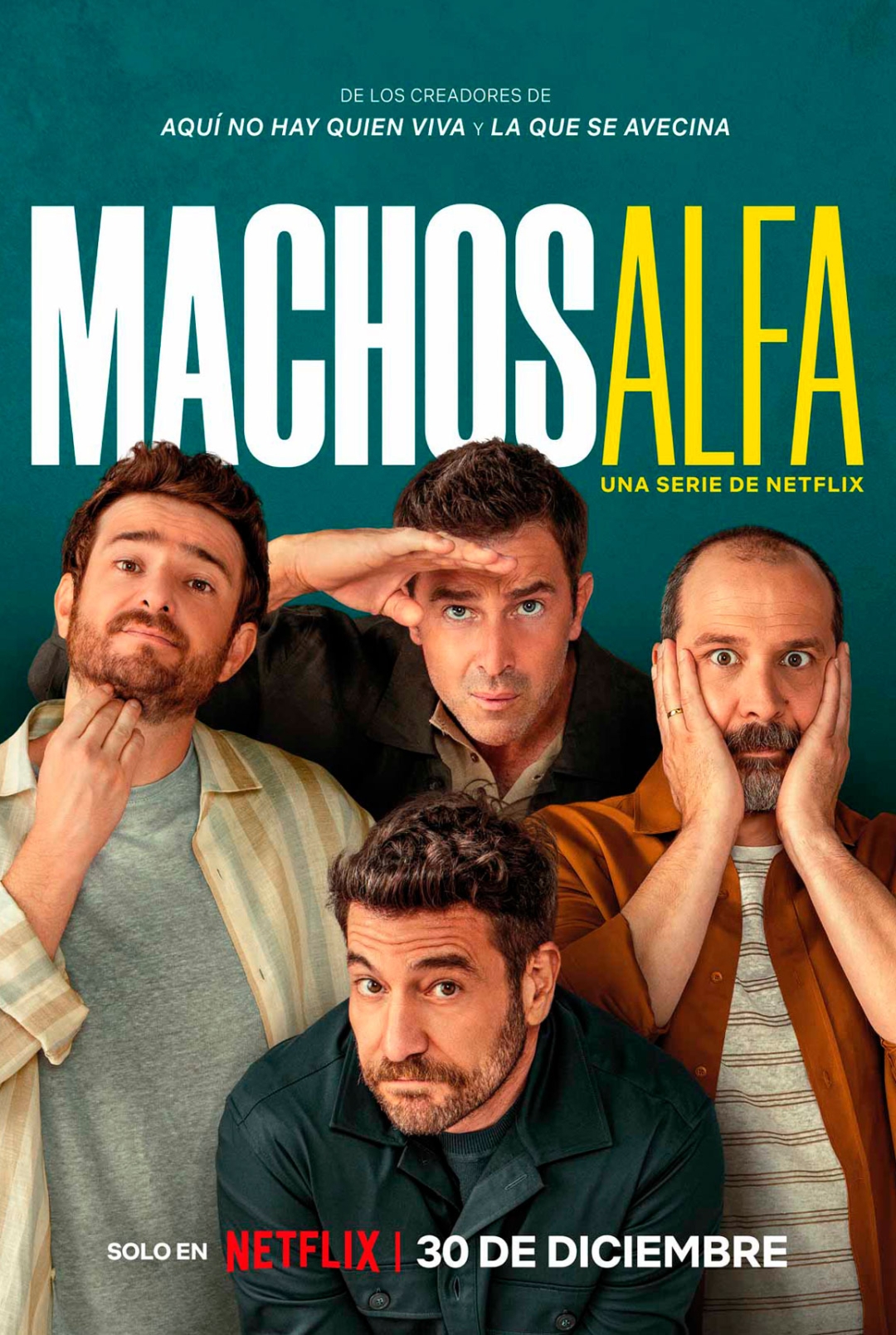
Poster of Alpha Males, produced by Contubernio. © Netflix
Alpha Males deals with a serious and really relevant topic, new masculinity, through comedy. Is laughter a good ally to address serious topics?
Laughter is the best ally. Any topic, however serious, delicate, or complicated it may be, becomes more accessible through comedy. If, when addressing a serious matter you become even more serious, you push people away because they struggle to get into it. On Vaya semanita, a programme I was lucky enough to take part in, we applied humour to everything, even extremely delicate topics, and people took it really well. Comedy is a really interesting vehicle to deal with serious topics.
Even though you’ve also played dramatic roles, comedy has had a big impression on your career. Does making people laugh require a particular talent?
It requires a lot of things, but the main thing is a good script. Without it, it’s really hard to make people laugh. Comedy is a really weird art because, in reality, it’s deadly serious. It consists of looks, inflections, silences, and it also depends a lot on your partner. You can’t do comedy on your own. There aren’t any basic rules to do comedy and, in fact, often times you don’t know what can make the audience laugh or not.
“There aren’t any basic rules to do comedy and, in fact, often times you don’t know what can make the audience laugh or not”
Speaking of talent, what does that word mean to you?
It’s a concept that’s hard to describe... There are many ways to see it or read it, but basically I’d associate it to an innate talent someone has. A skill that can be strengthened, but also destroyed if you don’t work on it. Coming back to comedy, some people can’t hide it, it’s in their face or the way they talk. In short, some people are just funny. I’ve never been the funniest person in my friend group, in fact, I’m really bad at telling jokes (laughs). Funnily enough, since I started working as an actor, I’ve always been told I’m funny, but it’s not something I actively seek; the key is doing things naturally and truthfully. We actors that have the ability to make others laugh have to make the most of it, because laughing is therapeutic.
2023 is off to a great start for you and, shortly, you’ll be in the second film (Eres tú) by director Alauda Ruiz de Azúa, a rising star after her debut with Lullaby. Can you tell us anything about the project?
I’m not allowed to say much, but working with her has been a pleasure. The script for Eres tú isn’t by Alauda, but she’s made it her own by providing her vision and her way of doing film. It’s a romantic comedy, really different to Lullaby, and she’s imbued it with her talent.
